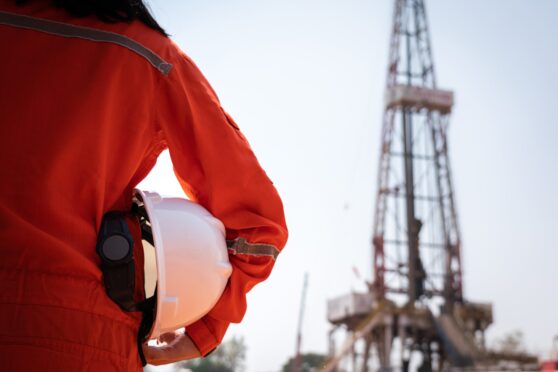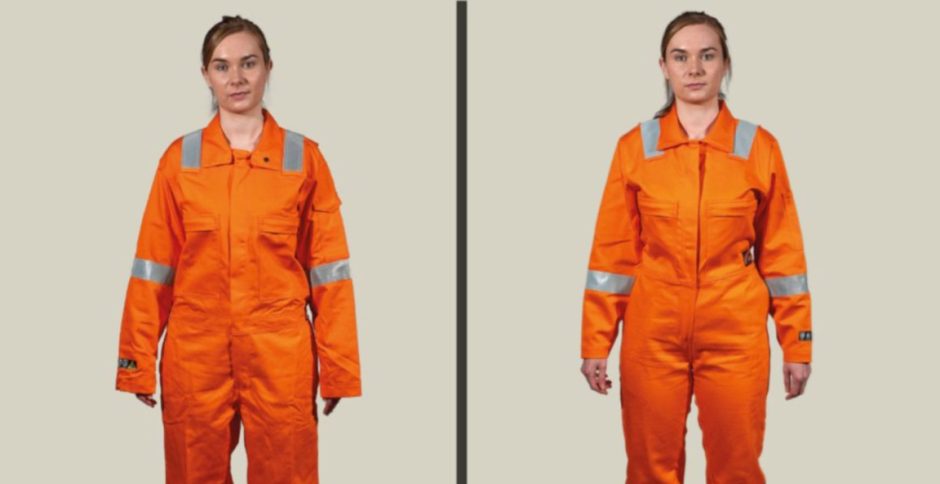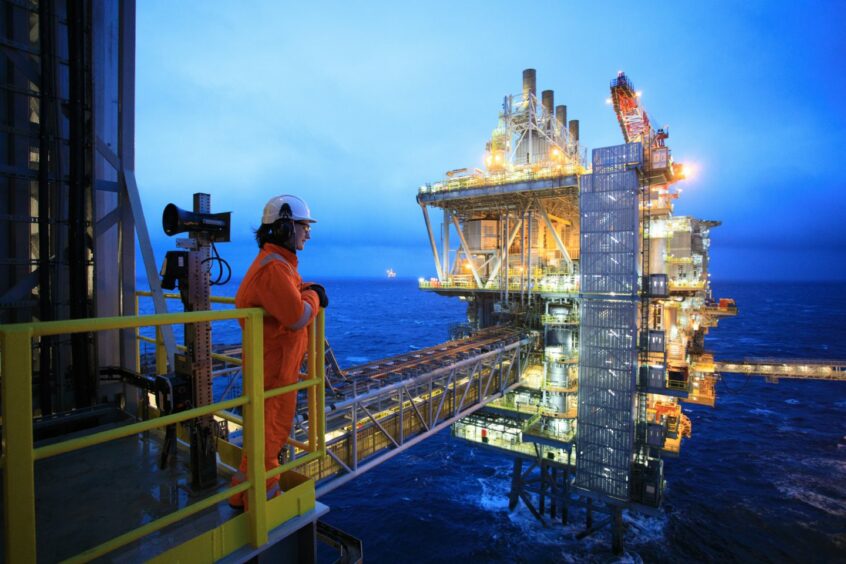Women working in the North Sea energy sector continue to stuggle to find correctly fitting personal protective equipment (PPE), it has been claimed.
In 2021 Aberdeen-based gender equality group Axi Network conducted a survey that found 68% of female workers offshore did not have “correctly fitting” coveralls.
More than two years on, group chairwoman Sarah Clark said that despite women’s PPE being made available by suppliers, the industry still faces an “educational challenge” when it comes to rolling out kit.
When supplied with the wrong PPE women are exposed to the risk of slips, trips and falls, sleeves getting snagged in machinery, and the added danger associated with flash fires – sudden, intense fires caused by the ignition of flammable substances in the air.
Ensuring women have adequate clothing and PPE has been a talking point in the industry for years.
Axis Network’s survey showed 8% of female workers have been “bumped” from offshore flights because they were supplied with ill-fitting survival suits.
Having correctly fitting PPE for women is an “easy win”, Axis Network said, adding: “It is a legal requirement for all employers in the UK to provide appropriate PPE free of charge.
Offshore PPR doesn’t account for ‘how women are proportioned differently’
“Most employers believe smaller sizes of unisex PPE fulfils this requirement – doing little research into the design of unisex PPE, which is most often based on average dimensions for men and has not accounted for how women are proportioned differently.”
Axis Network urged employers to become better acquainted with the requirements to supply women with adequate PPE.
And it called on those who employ offshore workers to “engage the right suppliers and regularly seek feedback from their female offshore workforce”.
A spokesperson for the group said: “As we transition towards net-zero, the sustainability of our industry is dependent on process efficiency.
“Tolerating personnel missing flights, resulting in potential delays to work, should be unacceptable.”
The bigger concern, according to Axis Network is the “risk we are exposing these workers to from having poorly fitted survival suits or other PPE”.
Supplier’s right-fit campaign
PPE supplier Red Wing said the issue of incorrectly fitting protective gear was increasingly attracting attention.
The firm’s Right Fit campaign has helped to raise awareness of the dangers presented by ill-fitting equipment.
Jon Bodicoat, managing director of Red Wing’s distribution facility in Aberdeen, said the interest in this was huge, adding: “Since then, we’ve extended it further.”
Nearly one in five (19%) had ill-fitting safety shoes and 43% had gloves that weren’t suitably sized.
But women make up as little as 3.4% of the offshore workforce.
Mr Bodicoat described the challenge as “a chicken and egg thing”.
He added: “Smaller firms don’t have the capability of spending “£5,000… on coveralls that are going to sit there for five years and then they’re going to have to write them off.”
Worker safety ‘paramount’
Offshore Energies UK (OEUK) HSE and operations director Mark Wilson said: “The safety of all those working in the industry is paramount.
“There is no room for complacency and the approach of continuous improvement should remain.
“OEUK and its members continue to work with stakeholders to ensure personal protective equipment is fit for purpose for those who work offshore.”





Conversation